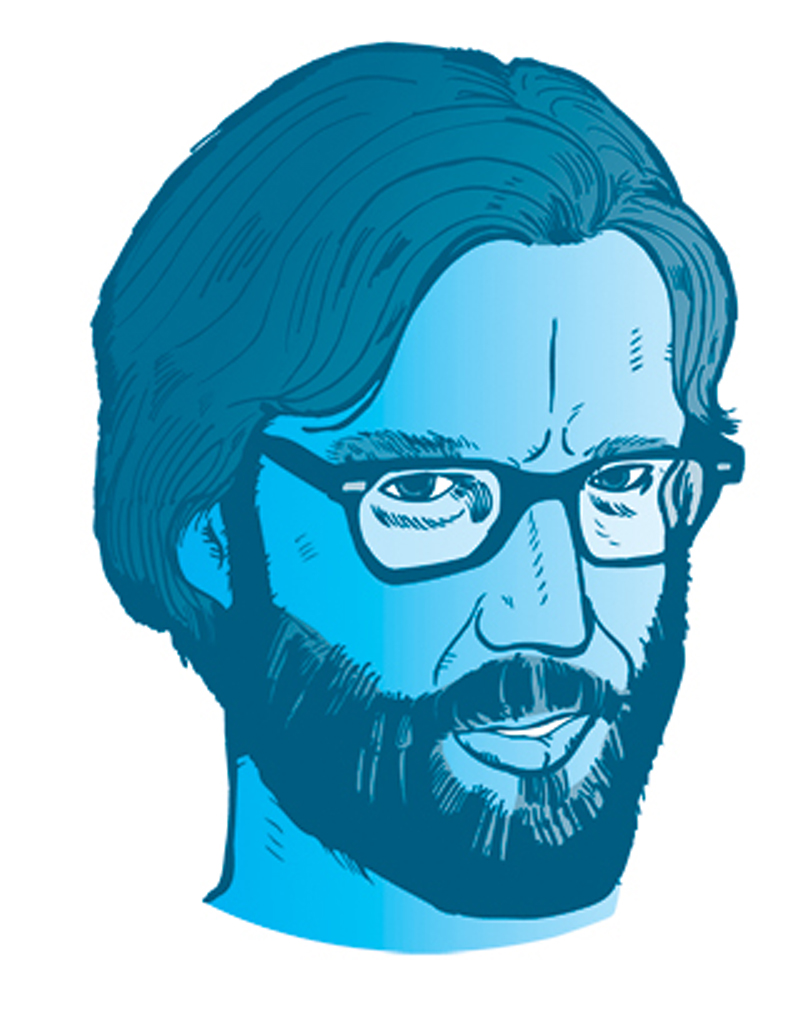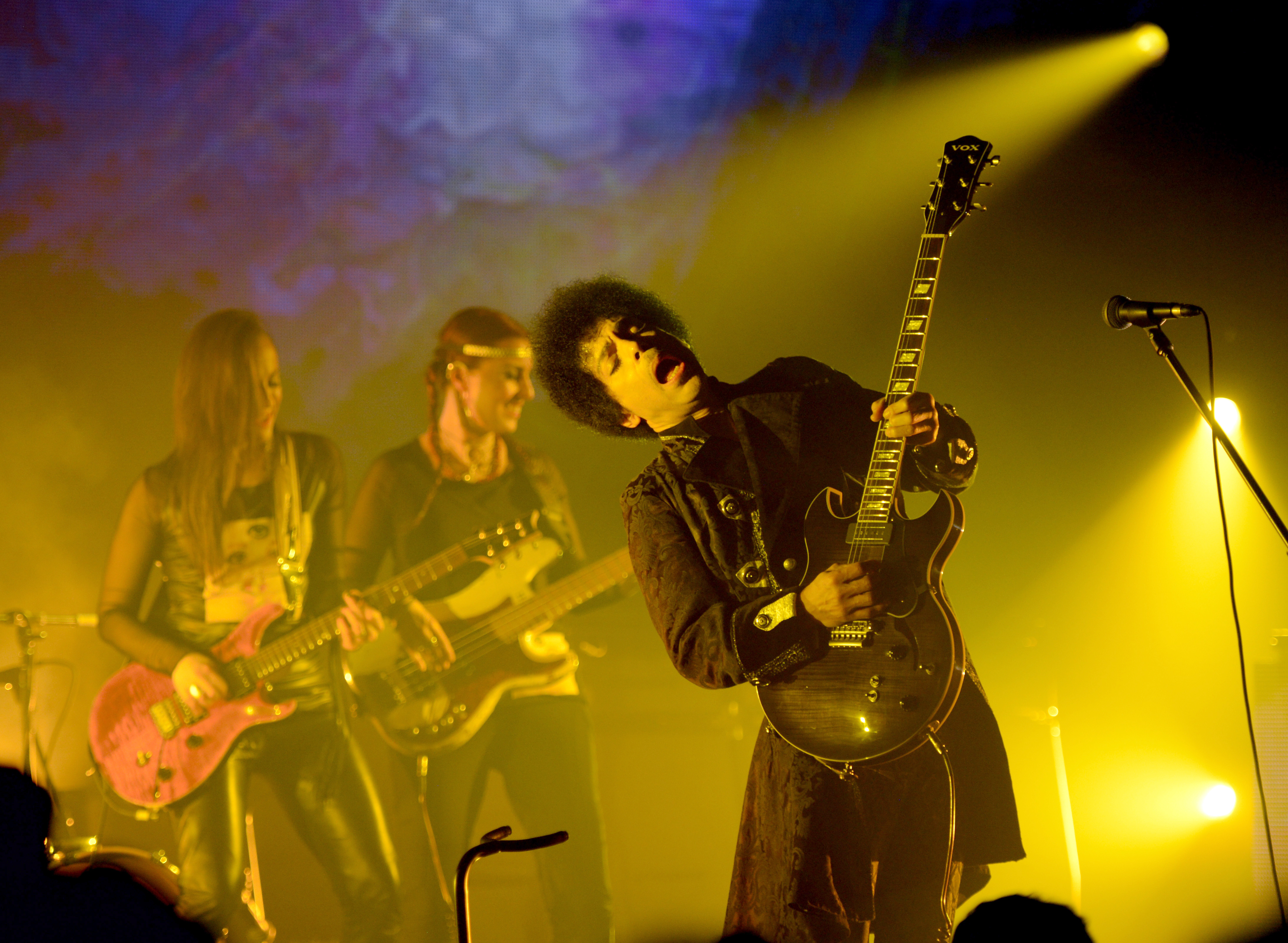Hey, John: Tell me something: Why do Seattleites call Nevermind “the Nirvana Record”? What, we’re just supposed to know which record they’re talking about? How pretentious!
—C.R.K., the south end
Roderick: The first paradox of Seattle is: No one will discuss Nirvana with you in a straightforward way unless they’re sure you can be trusted, and it is impossible to trust anyone who wants to talk about Nirvana. You have to understand that the grunge years were a period of Stalinistic paranoia. Agents of the Credibility Police were listening in on every conversation, their stocking caps and long underwear stained with the tears of the insufficiently blasé. I watched many good people, innocent people, publicly SNEERED TO DEATH for even suggesting that the band Bush might have a couple of good songs.
Why, I shudder to type the word “Nirvana” even now for fear that Kurt Cobain himself might appear and chastise me for not appreciating the brilliance of Shonen Knife. To state it simply, it is impossible to discuss Nirvana, for to discuss Nirvana is to demonstrate that you are unfit to discuss Nirvana.
Hey Roderick: Now that the 2012 election cycle is in full swing, I’ve got a hypothetical for you: What would your rock-and-roll cabinet look like?
—J. Huntsman, Utah
Well, since we’re dealing in hypotheticals, my cabinet would consist entirely of hot Jewish girls. That’s my platform.
As a native Alaskan, do you feel slighted by grunge’s having co-opted flannel shirts and turned them into a status symbol for someone other than Kokanee-swilling lumberjacks?
—Mochi Wells, Ketchikan
Seattle is so full of itself now—so stoned on self-aggrandizement and bloated with unearned Internet billions—that it’s easy to forget what a massive inferiority complex it had in 1991. No one in America had heard of Seattle except as someplace Elvis visited for a week in the ’60s. It was a depressing, soggy, backwater shithole full of losers, junkies, and prostitutes. It smelled like clam chowder and creosote. And no one even remotely talented or pretty wanted to be here. In contrast, Alaska never once experienced even a modicum of self-doubt, because Alaska is a completely psychopathic nation-state convinced that it’s God’s chosen wonderland, and every single Alaskan believes he or she is a special breed of rugged individualist whom no law can contain.
When Seattle kids started dressing like Alaskan fishermen and lumberjacks, they were trying to capture some of that insane aura of invincibility, which is equal parts alcoholism, borderline-personality disorder, monomania, and death wish. Alaskans didn’t notice their style had been co-opted because Alaskans were completely unaware they had a style, just as they now have no concept that wearing a T-shirt with a picture of a salmon on it is not appropriate wedding attire.
How did grunge music turn into lame-ass indie music in just 10 years?
—Alan Hoover, Kent WA
The transition from grunge to indie was a very natural evolution based on a simple Northwest principle: Whatever is cool is instantly uncool, forever. Indie rock was initially performed with so little enthusiasm that it qualified as a massive art installation: a whimpering sound in the darkness accompanied by a boring lecture on gender neutrality while someone licked a xylophone.
I personally believe that it was intended to be hilarious, but teenagers incapable of perceiving irony embraced the new sound before anyone could explain the joke to them. Those original teenagers are now 35-year-olds, and indie rock has progressed through 700 levels of meaninglessness until it finally encompasses everything. Think about it: There is now some version of indie rock that sounds like every single other kind of music. Grunge was Led Zeppelin slowed down to the point that it transcended boring; indie is a rehash of the boring parts of every band stretching to infinity. It is the principle perfected.
I remember watching you taking $100 bribes from A&R reps to let them into a sold-out Gruntruck showcase, calling them fuckheads to their faces, back when you were the manager of the Off Ramp in 1991. Was that grunge?
—Trevor Mitchell
I started as a busboy at the Off Ramp in January 1991. By March I was the head cook. In April I was the assistant manager, and by July I was fired. It was a very “grunge” career.









